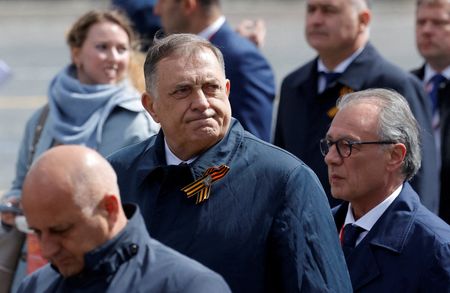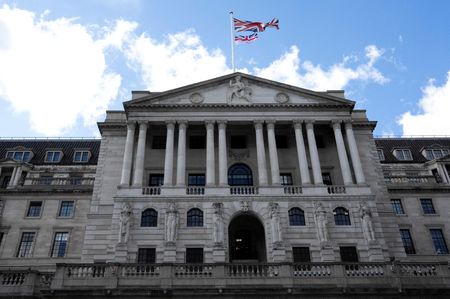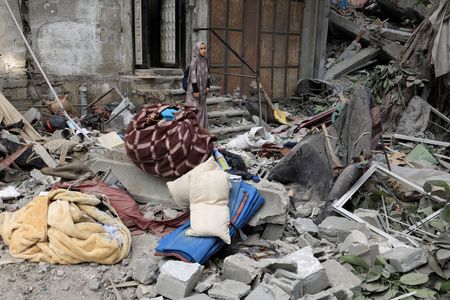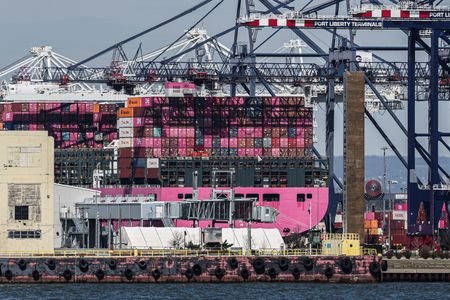By Daria Sito-Sucic
SARAJEVO (Reuters) -Russia on Thursday said that a Bosnian court ruling banning the separatist Bosnian Serb president from political office for defying orders from the international peace envoy has put Bosnia and Herzegovina’s existence as a united country at risk.
Bosnia’s election commission on Wednesday decided to remove Milorad Dodik from office after an appeals court last week upheld a verdict jailing him for a year and banning him from politics for six years.
Dodik is a pro-Russian nationalist with close ties to Russian President Vladimir Putin who has long advocated secession of the Serb-dominated region from Bosnia and has often acted to block Bosnia’s integration into the European Union and NATO.
In response to the court ruling, the Russian embassy said the “politicised verdict” was brought under the pressure of Western countries which used law-making agencies to “destroy their opponents”.
“Bosnia and Herzegovina cannot afford to make a historic mistake,” the embassy said in a statement. “Has its reputation of the ‘European powder keg’ been forgotten…?
“Because not only the place of Bosnia and Herzegovina in ‘democratic European family’ is at stake … Indeed, the existence of Bosnia and Herzegovina as a united country is at stake,” the embassy said.
In the U.N. Security Council in 2021, Russia and China blocked the endorsement of Christian Schmidt, a former government minister from Germany, as international High Representative in Bosnia with a mandate to prevent multi-ethnic Bosnia sliding back into civil war.
The Bosnian Serb nationalists have never recognised Schmidt as a legal envoy nor respected his decisions.
Dodik dismissed his conviction by the court in February. On Wednesday, he announced a referendum on whether he should stay in office and accused Schmidt and Muslims (Bosniaks) of conspiring to bring him down.
Russia called on the Bosnian authorities to dismiss the “outside dictate” and work to reduce tensions.
“If the situation steps out of control, they will bear the responsibility,” the embassy said. “The moment of truth for Bosnia and Herzegovina has come because after this a point of no return may follow.”
Bosnia is in its worst political crisis since the 1992-95 war, which killed around 100,000 people. The 1995 Dayton peace treaty divided Bosnia into autonomous Serb and Bosniak-Croat federal entities with a weak central government.
(Reporting by Daria Sito-Sucic; Editing by Kate Mayberry)











